A request that this article title be changed to LGBTQ topics in Mexico is under discussion . Please do not move this article until the discussion is closed. |
LGBT in Mexico may refer to:
A request that this article title be changed to LGBTQ topics in Mexico is under discussion . Please do not move this article until the discussion is closed. |
LGBT in Mexico may refer to:
Anti-LGBTQ rhetoric comprises themes, catchphrases, and slogans that have been used in order to demean lesbian, gay, bisexual, transgender, and queer (LGBTQ) people. Anti-LGBTQ rhetoric is widely considered a form of hate speech, which is illegal in countries such as the Netherlands, Norway, and Sweden.

National Coming Out Day (NCOD) is an annual LGBT awareness day observed on October 11 to support anyone "coming out of the closet". First celebrated in the United States in 1988, the initial idea was grounded in the feminist and gay liberation spirit of the personal being political, and the emphasis on the most basic form of activism being coming out to family, friends, and colleagues, and living life as an openly LGBTQIA+ person. The founders believed that homophobia thrives in an atmosphere of silence and ignorance and that once people know that they have loved ones who are LGBTQIA+, they are far less likely to maintain homophobic or oppressive views.
Same-sex adoption is the adoption of children or adults by same-sex couples. It may take the form of a joint adoption by the couple, or of the adoption by one partner of the other's biological child or adult.

Rights affecting lesbian, gay, bisexual, transgender and queer (LGBTQ) people vary greatly by country or jurisdiction—encompassing everything from the legal recognition of same-sex marriage to the death penalty for homosexuality.
The origin of the LGBTQ student movement can be linked to other activist movements from the mid-20th century in the United States. The Civil Rights Movement and Second-wave feminist movement were working towards equal rights for other minority groups in the United States. Though the student movement began a few years before the Stonewall riots, the riots helped to spur the student movement to take more action in the US. Despite this, the overall view of these gay liberation student organizations received minimal attention from contemporary LGBTQ historians. This oversight stems from the idea that the organizations were founded with haste as a result of the riots. Others historians argue that this group gives too much credit to groups that disagree with some of the basic principles of activist LGBTQ organizations.
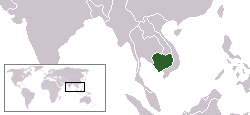
Lesbian, gay, bisexual, and transgender (LGBTQ) people in Cambodia face legal challenges not experienced by non-LGBT residents. Although same-sex sexual activity is legal in Cambodia, it provides no anti-discrimination protections for LGBT people, nor does it prohibit hate crimes based on sexual orientation and gender identity.

Lesbian, gay, bisexual, transgender, and queer (LGBTQ) rights in Mexico expanded in the 21st century, keeping with worldwide legal trends. The intellectual influence of the French Revolution and the brief French occupation of Mexico (1862–67) resulted in the adoption of the Napoleonic Code, which decriminalized same-sex sexual acts in 1871. Laws against public immorality or indecency, however, have been used to prosecute persons who engage in them.

Lesbian, gay, bisexual, and transgender (LGBT) people in Albania face legal challenges not experienced by non-LGBT residents, although LGBT people are protected under comprehensive anti-discrimination legislation. Both male and female same-sex sexual activities have been legal in Albania since 1995, but households headed by same-sex couples are not eligible for the same legal protections available to opposite-sex couples, with same-sex unions not being recognized in the country in any form.
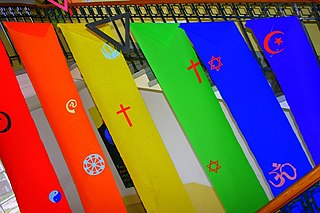
Lesbian, gay, bisexual, transgender and queer (LGBTQ+)-affirming religious groups are religious groups that welcome LGBT people as their members, do not consider homosexuality as a sin or negative, and affirm LGBT rights and relationships. They include entire religious denominations, as well as individual congregations and places of worship. Some groups are mainly composed of non-LGBTQ+ members and they also have specific programs to welcome LGBTQ+ people into them, while other groups are mainly composed of LGBTQ+ members.
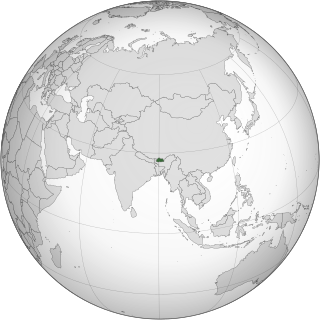
Lesbian, gay, bisexual and transgender (LGBT) people in Bhutan face legal challenges that are not faced by non-LGBTQ people. Bhutan does not provide any anti-discrimination laws for LGBT people, and same-sex unions are not recognised. However, same-sex sexual activity was decriminalised in Bhutan on 17 February 2021.

Lesbian, gay, bisexual, transgender, and queer (LGBTQ) people in Qatar experience legal persecution. Sexual acts between males and between females are illegal in Qatar, with punishment for both Muslims and non-Muslims of up to three years in prison. For Muslims duly convicted in the sharia courts, a judicial sentence of capital punishment for homosexuality is a possibility, though it has never been imposed. Abuse such as beatings and torture, and forced "conversion therapy" have also been used by police and other authorities.
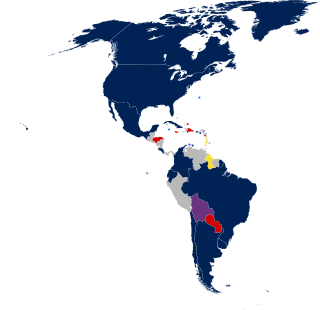
Laws governing lesbian, gay, bisexual, transgender and queer (LGBTQ) rights are complex and diverse in the Americas, and acceptance of LGBTQ persons varies widely.

The relationship between religion and lesbian, gay, bisexual, transgender and queer (LGBTQ) people can vary greatly across time and place, within and between different religions and sects, and regarding different forms of homosexuality, bisexuality, non-binary, and transgender identities. More generally, the relationship between religion and sexuality ranges widely among and within them, from giving sex and sexuality a rather negative connotation to believing that sex is the highest expression of the divine.
LGBTQ literature may refer to:
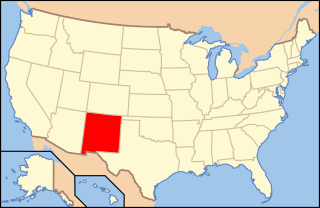
Lesbian, gay, bisexual, transgender, and queer (LGBTQ) people in the U.S. state of New Mexico enjoy the same rights as non-LGBTQ people. New Mexico has seen prominent advances in gay and lesbian rights in recent decades. Same-sex sexual activity has been legal since 1975. Same-sex marriage is legal statewide in New Mexico, as is adoption and access to fertility treatments for lesbian couples. Same-sex couples have had the same rights as heterosexual married couples since 2013. Discrimination on the basis of sexual orientation and gender identity is banned statewide in the areas of employment, housing and public accommodations. Additionally, conversion therapy on minors is prohibited in the state.
LGBT migration is the movement of lesbian, gay, bisexual and transgender (LGBT) people around the world or within one country. LGBT individuals choose to migrate so as to escape discrimination, bad treatment and negative attitudes due to their sexuality, including homophobia and transphobia. These people are inclined to be marginalized and face socio-economic challenges in their home countries. Globally and domestically, many LGBT people attempt to leave discriminatory regions in search of more tolerant ones.

The following outline offers an overview and guide to LGBTQ topics:

In the past most lesbian, gay, bisexual, transgender, and queer (LGBTQ) personnel had major restrictions placed on them in terms of service in the United States military. As of 2010 sexual orientation and gender identity in the United States military varies greatly as the United States Armed Forces have become increasingly openly diverse in the regards of LGBTQ people and acceptance towards them.